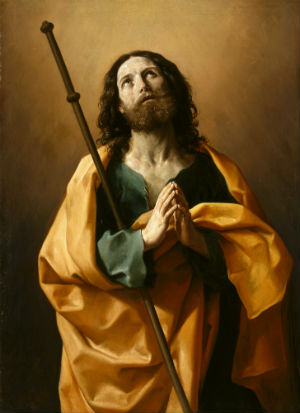
By Robert Mullen (NEWS CONSORTIUM), It is a sad and disheartening fact that many Christians suffer from constant-and often brutal-persecution today, most visibly in places like the Middle East where the Islamic State rules, or in Asian nations like India or China where Christianity is a minority-India-or where all religions are barely tolerated-China.
But the persecution of Christians is not a new phenomenon. It has existed since the time of Christ, not just when the Roman Empire first recognized that Christianity was a separate religion and not a sect of Judaism; and it continued on and off for centuries until the Edict of Milan made Christianity an officially recognized religion within the Roman Empire in 313 AD. While these early persecutions were horrendous, they played a major role in shaping the future of Christianity and the Catholic Church. Cults dedicated to the martyrs and saints were important for spreading the word, and numerous written defenses of and arguments for Christians helped sway public opinion and increase conversion from Greco-Roman pagans, both of which were key factors in Christianity's rapid expansion throughout Europe, the Middle East and North Africa
The earliest of these persecutions took place in Middle East, under the reign of King Agrippa I in the first century AD. During this time, many Jews saw Christians as just another sect, and many acts of violence were interpreted by the Jews as disciplining their wayward and misguided fellows.
It was here that St. James the Greater was executed by the sword, while St. Peter and the rest of the apostles of Christ fled.
Tensions remained high between Jews and Christians in the Holy Land during this early period, especially between early Christians and the Pharisees-whose views and ideas would greatly influence modern Judaism-but under Roman governorship peace was-usually-maintained. Within the interior of the Roman Empire, this did not hold true.
In AD 64 a great fire broke out in the city of Rome and burned for six days, causing untold destruction and death, and causing a great economic slump for Roman citizens in the region. While the actual cause of the fire is unknown, Emperor Nero, intending to quiet rumors that he caused the fire to be started, blamed the Christian community within the city as the starters of the blaze.

An image depicting the burning of Rome. A fire which lasted six days and seven nights. A third of the city was burned and economically devastated. Emperor Nero blamed Christians to quiet rumors that he started the fire.
A pagan population already suspicious of this new religion from the east which refused to make sacrifice to Roman gods and actively sought out the poor and destitute as converts, were eager to accept Nero's story.
The Roman historian Tacitus wrote that in order to stop the rumors about himself, Nero "falsely charged with guilt, and punished with the most fearful tortures, the persons commonly called Christians... first those (who) were arrested who confessed they were Christians; next on their information, a vast multitude were convicted, not so much on the charge of burning the city, as of 'hating the human race."

St. Peter and St. Paul, both of whom were executed by Emperor Nero during the first round of Christian persecution in Rome.
It is not known exactly what fate befell these Christians, but some modern scholars, pointing to specific translations of Latin sources believe that under Nero being Christian was a capital offense. This may shine truth on the claim that Nero would crucify Christians and burn them while still alive in his private gardens for light during evening meals with guests. It is commonly accepted that St. Peter was crucified and St. Paul beheaded during this first round of violent persecution in the mid '60s.

A painting depicting Emperor Nero and guests watching the execution of Christians.
While under the Emperor Domitian some sources of historical dubiousness report ongoing persecution, it was under the reign of Emperor Trajan (AD 98-117) that the next historically verified documents report violence against Christians.
Pliny the Younger was sent as governor to a Roman province in Anatolia (modern Turkey), where he knew that courts were overhearing cases involving accusations of citizens being Christians. Unfamiliar with how to deal with these cases, Pliny wrote to Trajan, asking the emperor's opinion on how best to deal with these people.
Within the correspondence it becomes clear that Trajan viewed the crime of being Christian-no other potential reasons are listed within the letters-enough for judicial action, and cases of individuals renouncing their faith in Christ or denying it could be dealt with on a case by case bases.
It is known that Pliny had several Christians executed in 112, but if more were killed before or after is open to speculation. The trials do shed light on some of the major issues that Roman authorities had with Christians, that they were atheists, cannibalistic and incestuous.
These crimes attributed to Christians were based on misunderstandings of the Eucharist and the tradition of Christians calling their fellows "brothers and sisters". Atheism was defined as refusing to pay proper respects to the gods of the Roman Empire, and as most Roman's considered the success of their state to hinge upon pleasing the gods, a major crime.
Under the next emperor, Hadrian (AD 117-138), Christians were able to breath easier, with fewer restrictions.Most notable was a decree that being a Christian was not sufficient enough a reason to be tried. In order to face punishment a Christian had to actually commit an illegal act, but furthermore, slander against Christians would not be tolerated. If a Roman citizen brought a charge against a Christian but failed to prove it in court, that citizen would face punishment themselves.
However, this brief period of tolerance would not last. Dark days were coming, and the worst onslaught against the early Christians would soon begin, renewed with pagan zeal and brutal efficiency.